Strobe the People
We woke up the next morning and checked out of the Hotel Ziad Al Khabir in Damascus. We had developed quite a warm relationship with the place, its staff, and its grungy Sudanese vibe. We were none too excited to leave, but we had a whole bunch of Lebanon to visit. We would get a chance to see more Syria on our way back through, heading toward Turkey, but that doesn’t mean that our departure was not without some pulling on the heartstrings.
The owners let us leave our things at the hotel while we went out in search of breakfast. We ended up finding one of the best restaurants of our time in the Middle East. Furthermore, it was right across the street from our hotel, startlingly affordable, and downright luxurious.
The name of the place was the Al Negma, and it comes most highly recommended to any AsiaWheeling readers who find their way into Damascus. We sat down in the Al Negma and ordered a splendid feast of salads, pastes, roast chicken, and pilaf.
We ate and read about the history of Damascus on the wikireader, savoring our last meal in this fine town.

After paying the bill, we chatted with the owner for a while, and he directed us as to how to properly make our way to the bus station. We thanked him and headed back up to the Ziad Al Khabir to get our bags.
In the lobby, as we were saying goodbye to the staff, a particularly talkative old man appeared, and though he spoke no English, vehemently and perhaps drunkenly joined in the conversation. As he spoke, he would emphasize his phrases by reaching out and touching Claudia’s arm or thigh. She would brush his hand away, gently scolding him when he did this, but the behavior continued. The entire experience was becoming decidedly uncomfortable and inappropriate by the time we were happily surprised by the old man’s sudden departure down the stairs toward the street.
Glad to be free of him, we loaded up all our stuff and filed one by one down the few flights of crumbling stairs and hallways that lead from the Ziad Al Khabir out to the street. I was taking the lead and already beginning to sweat, lugging all my things down the ancient and slanting spiral staircase. As I focused on making my way down, I barely noticed the same old man returning up the stairs, passing me on my way down.
Once I got outside, I began to unfold my bike, looking up from my work to see Scott and Claudia appearing as well. Claudia looked upset. It turned out that the same old man had gone at her once again, this time in the stairwell, as she was passing. Hands full of all her stuff, and teetering on the stairs, she could do little to stop him from grabbing at her body. She yelled at him and eventually he stopped.
As she told the story, once again Scott and I found ourselves in a situation in which we were unsure what to do. Should we go track down this old man and give him a talking to in English, Chinese or Russian? The police would certainly be no help. The owners of the hotel also seemed happy to stand by and let this kind of thing happen as well. We also needed to get to the bus station. But the question still stood, at least, as to how we could prevent things like this from happening in the future. Perhaps we just needed to stay more vigilant, stick closer together when we felt things were unsafe. Whether there was a better response or not, we decided to focus on being supportive to Claudia , who while upset, seemed to be shrugging off the entire experience quite valiantly.
And so it was that in a mood somewhere in between anger, befuddlement, and pity, we climbed on the cycles and began to make our way toward the bus station.
We headed back out of town on the same streets that had brought us into the city, pedaling hard through now familiar territory. We were forced to stop, however, when a large red Land Rover pulled over in front of us, and four men in matching white polo shirts climbed out.
They ended up being a group of travelers from Bahrain who were doing their own adventure, Bahrain to England, in this shiny, decal emblazoned, Land Rover, and blogging their adventures on their website www.friendshiparabia.com.
We shared a little of our own tale with them, and had just enough time to pose for a group portrait (scroll to the bottom), before we apologized and explained that we needed to get to the bus station in time to catch a bus that wouldn’t get us into Beirut in the middle of the night.
So off we went, through a large roundabout, which seemed to be centered around a giant, ornate, stained-glass, upside-down cross. Claudia pulled over to ask a taxi driver with some obvious engine problems about how to get to the bus station. He was more than happy to point us in the right direction.
And so we began a long, but gentle incline that took us many kilometers up and out of the city, eventually piping us onto a highway that climbed, long and slow, up to the bus station. We knew we were getting near to the place when street began to be lined on either side with — of all things not stereotypically Middle Eastern — liquor shops.
Now, dear reader, booze is not hard to buy in Syria. It is easier and cheaper, in fact, than in Jordan, and about a thousand times easier and cheaper than in the Gulf. But this retail concentration was unprecedented. The street was just jam packed with booze sellers. It’s true, some of the booze they were selling was from Lebanon, but most of it was local… I just couldn’t fathom why such a strip might be conjured up here, in the middle of the desert outside Damascus. I continued to be startled, as we rode for about a kilometer of just roadside liquor shops. It was nuts.
At the bus station, there was plenty of conflicting signage, and a number of lying cab drivers who were attempting to convince us that the only way to get to Lebanon was by cab. All the red herring information had us riding around in circles for a bit before we finally made our way into the passenger terminal. Inside we were quite quickly approached by a one legged man, who hobbled toward us on a makeshift crutch.
“How the hell are you doing?†he said in what sounded startlingly like a Kansas accent. “Where’re y’all from?â€
I’ll have to refrain from the transcription going forward, for his level of obscenity reached such heights that were I to publish it here, AsiaWheel.com might be banned in Singapore. But, to give you the gist, he explained that he was an old Syrian navy man, who had worked closely with the U.S. He learned to speak English and to swear like a sailor from the real thing. He now lived here in Damascus making his money helping English speaking tourists to haggle for bus rates.
He was just enough of an endearing character that we decided to give him some business. He showed us to a bus and haggled dramatically with the guy for a bit. Then Claudia and I loaded the stuff into the car while Scott took everyone’s passports and followed our galumphing one legged guide into the crumbling ticket shop to get the tickets validated.
We were, of course sopping with sweat from the wheel, and before climbing on the bus, we emptied our pockets of all our hot, sweat-coated, Syrian coinage, dumping them into his hands. He made no complaints as to the sweaty nature of the money, and tried only once to convince us that it was not a big enough tip, to which Scott replied, “It’s plenty big.†To which he replied, “You’re right; it’s plenty big.â€
And then we were off. The air conditioning system of the bus began to ramp up, and the sweat began to dry off, leaving a salty crust all over our skin. It had been a hell of a wheel getting up here, but now we had nothing to do but watch the Syrian desert go by as we climbed over the Ante-Lebanese mountains toward Beirut.
I awoke from a nap to discover that we were at the Lebanese border. Everyone was climbing off the bus, and in the same way that we had observed in Jordan, rushing frantically to get through customs. Everywhere we looked, there was the Lebanese crest of the cedar tree and heavily armed military. Despite that, the vibe was not too threatening, and people bustled around like crazy, pushing each other in line and waving handfuls of currency around. We were once again some of the last to get through, having to first find an ATM, since the Lebanese border folks did not accept Syrian pounds.
It was my turn to Warbucks, and I stood before the giant red, cedar tree emblazoned ATM, guarded on both sides by men with machine guns, and wondered how much I should get out. We had neglected to consult any sources as to the proper exchange rate, and our questioning of the armed guards around us resulted only in gruff and inconclusive responses. Finally I just chose a number that I knew was significantly larger than the cost to buy visas for all of us. We’d heard Lebanon was expensive, and with Scott having lost his ATM card somewhere in Jordon, we would almost certainly go through all the money and more during our time here.
With newly printed Lebanese visas, entry stamps, and a nice wad of Lebanese Pounds, we climbed back onto the bus and headed into the country. Instantly, things became greener and more American. Signs began to show more English, and the numbers changed back to our familiar Arabic numerals. The sun was just setting as we drove into the outskirts of Beirut, but our way was well lit by long forgotten emblems, like signs for McDonalds and Pizza Hut. Also, the cars around us instantly became much more expensive, and the speed of traffic rose.
The sun had completely set by the time the bus dropped us off in front of a closed flower shop, somewhere in the hilly outskirts of Beirut. We looked around us, at the shining beacons of fast food restaurants and the xenon headlights of BMWs whipping past.
This was certainly a new country. We wheeled a couple blocks downhill to a gas station where we consulted the staff as to how to get to the city center. There were not many cheap hotels in Beirut, according to our research, but we had heard that searching in a neighborhood called Gemmayzeh might yield options, and there was at least one youth hostel there, which we believed to still be in operation.
The workers at the gas station were all dressed like frat brothers, in bright polo shirts, and Abercrombie shorts. They giggled at us when we explained that we were going to ride to Gemmayzeh saying that it was over seven kilometers away. Considering we’d ridden at least 20, uphill, to get to the Damascus bus station, we assured them it would be no big deal. We gave them all a chance to take the Speed TRs for a spin around the gas station before bidding them adieu.
So off we went, climbing uphill toward a large intersection, and following the gas station fellow’s directions, we took a left onto what was probably the most dangerous ride of the entire trip.
We pulled onto a giant unlit highway, and quickly realized that the drivers in Lebanon are unprecedented in their insanity. They soared by us, literally burning rubber, blinding us with ridiculous after-market super bright headlights, and blasting vanity horns that sounded more like police sirens than normal car horns.
As we rolled down this unlit highway, we struggled just to stay on our bikes as giant trucks whipped by us at over 100 kilometers per hour, pushing giant walls of wind, and honking deafeningly. To make matters worse, the advertisements along the roadside contained strobe lights that flashed at you as you rode by, perhaps to produce a paparazzi-like experience, but really just blinding and disorienting the poor wheeler.
Eventually I called a waypoint on what a generous person might have called the shoulder of the highway, and I turned back to the team.
“We need to get off this highway, before we die.†And I meant it with all my heart.
So we backtracked, heading up against the murderous traffic for 200 meters, perhaps, until we saw a spot where we could hoist our bikes over a barrier and into an active construction site. The entire construction site was flooded by some recent water leak, and so there was a kind or bright gray muck everywhere. As we began to climb back onto the Dahons, we were caught in the light of a giant steam shovel that began barreling down on us. Following the headlight beams of the steam shovel, we sloshed our way through the gray muck and made our way back down into the streets.
We pulled over at another a gas station, where the man behind the front desk spoke perfect, American accented English. He was more than happy to draw us a little map to Gemmayzeh, and assured us that we were not far off. He was also more than happy to expound on his views on American-Lebanese policy. He liked America, had even traveled there, but he was no fan of our presence in Lebanon.
“Lebanon is a government-less place,†he explained. “We are a weak country. We are a poor country. We have no oil. America gives us all this money to spy on our own people, but they won’t give our military weapons to defend our land.†It was interesting to hear his views. I don’t consider myself well enough versed in American and Lebanese policy or history to really comment here, but I invite more knowledgeable readers to chime in. I can say, however, that as we pulled back out onto the street, doing our best to dodge BMWs and not be blinded by strobe-covered Prada ads. It certainly did not feel like a poor place.
Indications of poverty continued not to present themselves as we worked our way into Gemmayzeh, which turned out to be a rather swanky, young night club district. After traveling for so long in strictly Muslim places, where most of the women were encouraged to dress quite modestly, it was downright startling to see the Lebanese all dolled up for a night out.
Lebanese women are naturally quite beautiful, but what really sets them apart from women elsewhere in the world is the presentation. They are unafraid to cake on the make-up or to squeeze themselves into startlingly skimpy clothes. The popular style of clothes in that part of town, at least, was pretty uniform, and very much in line with the types of things sold in American malls, at least when I was last at one: tight tee-shirts with names or slogans of businesses that don’t actually exist; tight shorts with brand names on the rear; designer jeans with bits of sequins and glitter; lacy camisoles; clothes that had been industrially distressed to provide a “on their last legs†look to them.
Frankly, the place felt like a strange manifestation of the dreams of American clothing manufacturers. People all dolled up, popping in and out of chain restaurants and swanky night clubs, fancy cars whipping around, lots of strobe lights disorienting people, and not a bicycle in sight.
Well, while this street was interesting, we were exhausted, and we needed to find a place to rest. We poked our heads into one hotel, which, while it looked like a totally shabby flophouse, attempted to charge us a startling amount. We wheeled on, looking for what had been, according to our research, the only cheap hotel in Beirut.
But try as we might, we just couldn’t find it. We finally stopped a couple of night-club goers, sporting quaffed hair, tight jeans, and glittering Dolce and Gabbana tee-shirts. They seemed to know where the place was, and led us down a dark alley and into an unlit building.
Scott ran in to check it out, and sure enough it was the place. Furthermore, by some strange stroke of luck, they had a room for us. The magnitude of our luck became all the more apparent as we made our way upstairs. This hotel had plenty of guests; most of whom, at appeared, did not have rooms.
People were sleeping on couches, on pads on the floor, on balconies and on the roof. Right outside our own window, we found a nest of Scandinavian backpacker women, snoozing on cots. As we threw down our bags in our own very strangely laid out room, we began to realize Lebanon was going to be a very unique chapter.
As I drifted off to sleep that night, I found head filled with many more questions than answers. Hopefully the next day’s wheel would help to settle some of these.












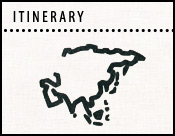
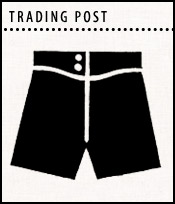
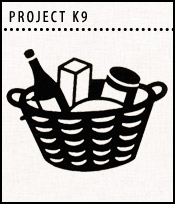
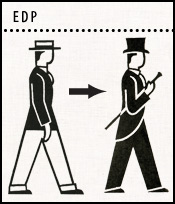
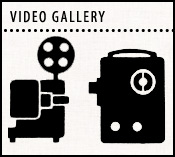
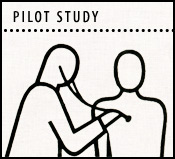
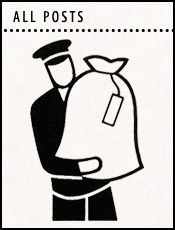





Comments
hey guys, i’m in paris! wheel on over and hang for a while 🙂
Wow, plenty of [at times scary] experiences for a single post!